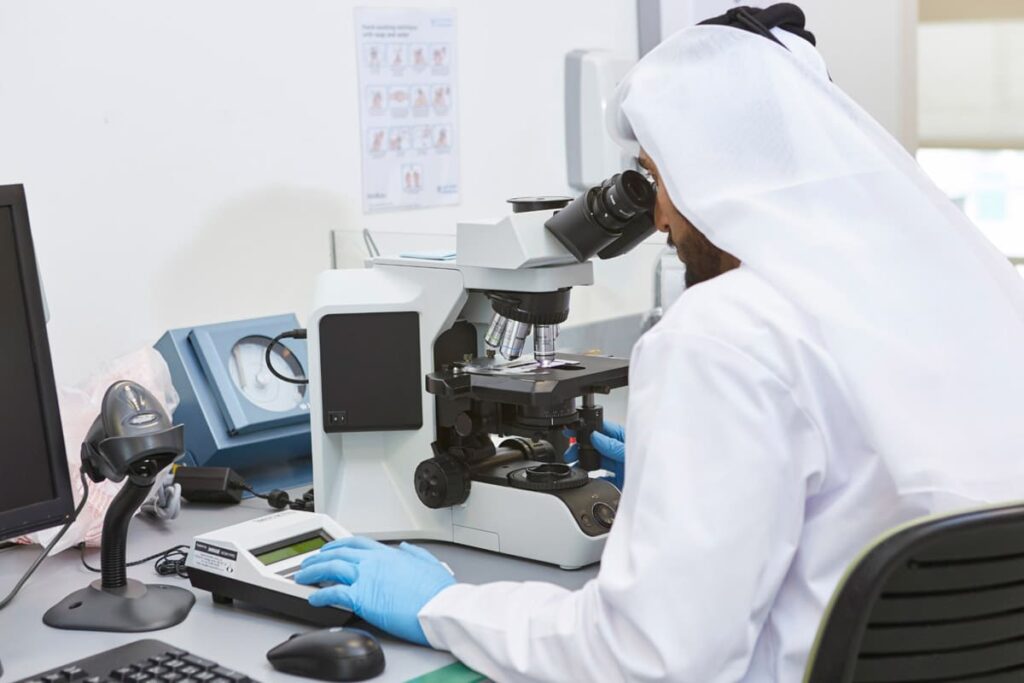In 2023, the healthcare sector in the UAE continues to thrive. It takes the lead both regionally and globally in terms of medical services and scientific accomplishments. These achievements reaffirm the country’s preparedness to confront health challenges while adhering to the highest international standards.
According to the Prosperity Index report from the Legatum Institute, the UAE secured the top rank in three crucial global competitiveness indexes within the healthcare sector. These indexes evaluated the country’s national early detection programs, the extent of medical coverage, and antenatal care coverage.
Additionally, the UAE achieved the second-highest global ranking in the Health Outcomes Index published by Open Data Watch’s 2022 Open Data Inventory report. Furthermore, it emerged as the top performer in the region.
UAE’s Commitment to Expanding the Sector
The UAE has surpassed other countries in the Middle East and Africa by topping the list for innovative drugs containing new active substances. Furthermore, the country’s swift assessment and approval of regulatory drug files also positioned it at the forefront, according to WAM.
With the highest healthcare spending growth rate among Gulf Cooperation Council (GCC) nations, the UAE’s healthcare spending is projected to reach $30.7B (AED 112.6B) by 2027. This forecasted compound annual growth rate of 7.4 percent, as reported by Alpen Capital, showcases the country’s commitment to expanding its healthcare sector.
Emirati health authorities, including the Ministry of Health and Prevention, the Department of Health-Abu Dhabi, and the Dubai Health Authority (DHA), have officially introduced “Tatmeen,” a groundbreaking national drug tracking system. This platform, the first of its kind in the region, aims to monitor and trace pharmaceutical products while securing and safeguarding healthcare supply chains in the country.
In 2023, the Emirates Health Services (EHS) unveiled the Innovation Strategy 2023-2026. This strategic initiative seeks to bolster the future sustainability of the healthcare sector and contribute to the realization of the National Strategy for Wellbeing 2031 and the “We the UAE 2031” vision in alignment with the UAE Centennial 2071 objectives.
Demonstrating its commitment to global humanitarian emergencies, the UAE’s healthcare sector continued to provide medical aid and supplies to friendly nations, including Syria, Turkey, and Sudan. These countries faced natural disasters and exceptional circumstances that necessitated prompt intervention and comprehensive medical, diagnostic, and therapeutic services for affected individuals.
Healthcare Infrastructure and Workforce Development
In recent years, the UAE has observed a steady growth in healthcare spending. For instance, the federal budget allocated AED 3.835B to healthcare and community protection services in 2016, which increased to AED 4.8B in the 2023 general budget.
The UAE remains dedicated to enhancing international partnerships in the healthcare sector and driving innovation and development. Artificial intelligence (AI) has become increasingly prevalent in the healthcare sector, driven by a comprehensive plan to fully integrate AI into medical services. This strategic approach aligns with the UAE Centennial 2071 vision, which emphasizes technological advancement and innovation across various industries, including healthcare.
The UAE has placed a strong emphasis on healthcare infrastructure, particularly hospitals and medical centers. As of the end of 2021, the country had 166 hospitals, including 54 government and 112 private hospitals. Furthermore, there were approximately 5,301 medical centers and clinics.
Efforts to develop the healthcare workforce in the UAE have also been prioritized. According to the Federal Competitiveness and Statistics Centre, the healthcare workforce in the UAE reached a total of 135,929 individuals in 2021. This workforce comprised 27,268 physicians, 7,476 dentists, 12,481 pharmacists, 59,798 nurses, and 28,906 medical technicians.


